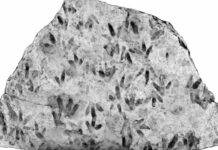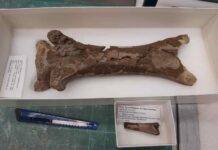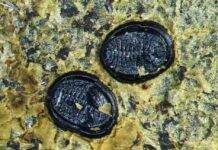
Recently, U.S. Geological Survey researchers and partners working in California’s Channel Islands National Park discovered mammoth remains in uplifted marine deposits that date to about 80,000 years ago, confirming a long-held but never proven hypothesis that mammoths may have been on the Channel Islands long before the last glacial period 25,000 to 12,000 years ago.
“These are the first confidently dated fossils from the California Channel Islands showing that mammoths had been on the islands a long time, not just during the last glacial period,” said lead author and USGS research geologist Dan Muhs. “It supports an older hypothesis that mammoths could have swum from the mainland to the islands any time that conditions were favorable for such a journey, when sea level was low.”
This discovery on Santa Rosa Island, detailed in the online and print journal editions of Quaternary Research, shows that mammoths likely ventured to the islands during at least one earlier glacial period, when sea level was lower than present and the swimming distance from the mainland to the islands was minimal.
The older age of mammoths also challenges the hypothesis that climate change and sea level rise at the close of the last glacial period (about 12,000 years ago) were the causes of mammoth extinction on the Channel Islands. Earlier mammoth populations also would have had to contend with climate change and sea level rise, but apparently survived.
The newly discovered fossil mammoth remains are likely Mammuthus exilis, the pygmy mammoth. The Columbian mammoth immigrated to the islands from the California mainland by swimming and the pygmy mammoth evolved on the islands from this ancestral stock. Most mammoth remains previously reported on the Channel Islands date to the last glacial period, about 25,000 to 12,000 years ago.
Mammoths are iconic animals of the Pleistocene Ice Ages, both in North America and Eurasia. Fossil mammoths and other proboscideans (elephants and their relatives) have also been found on many islands of the Mediterranean.
Reference:
Daniel R. Muhsa, Kathleen R. Simmonsa, Lindsey T. Grovesb, John P. McGeehinc, R. Randall Schumanna, Larry D. Agenbroadd. Late Quaternary sea-level history and the antiquity of mammoths (Mammuthus exilis and Mammuthus columbi), Channel Islands National Park, California, USA. DOI:10.1016/j.yqres.2015.03.001
Note : The above story is based on materials provided by U.S. Geological Survey.










